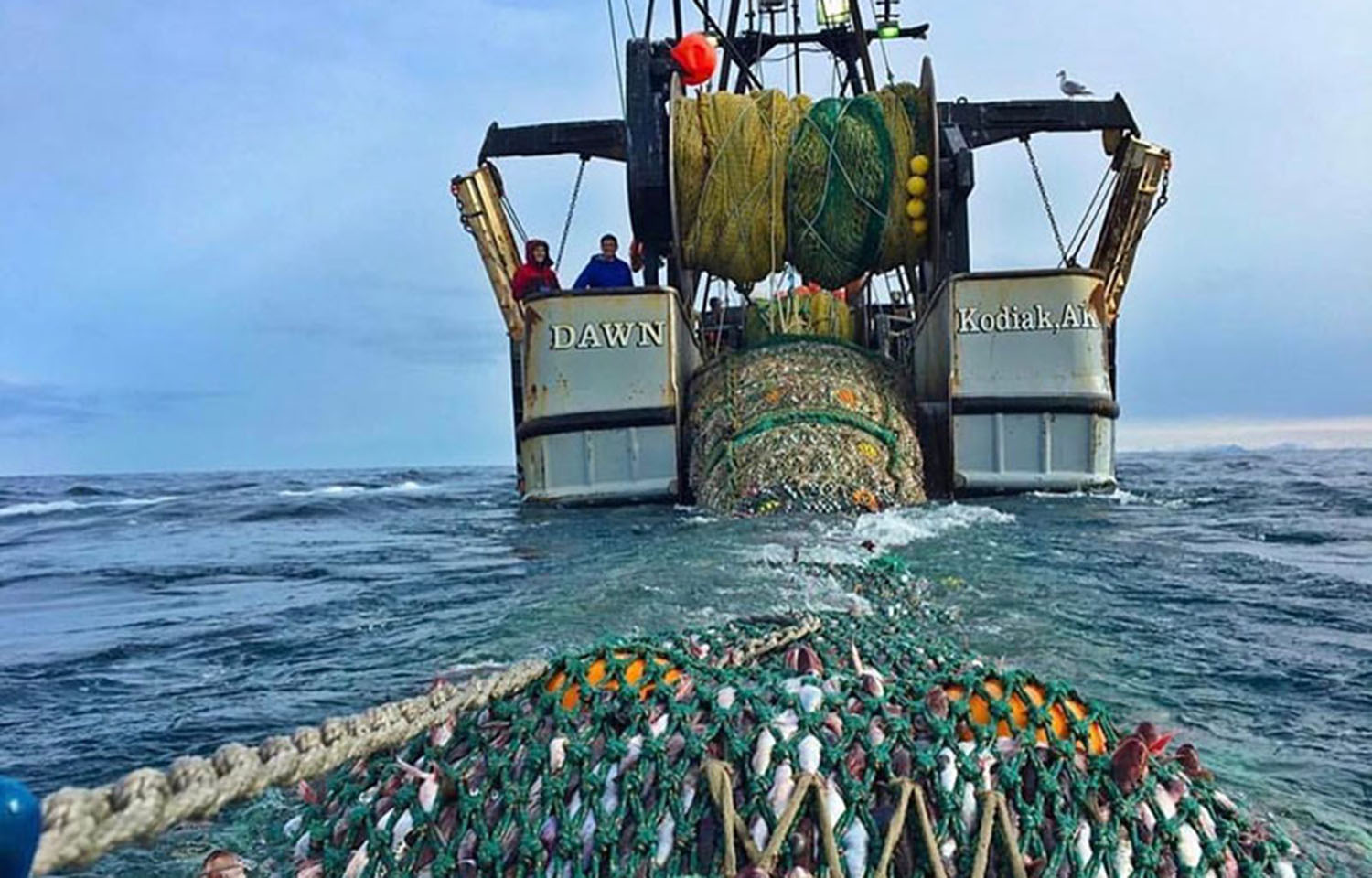U.S. suppliers are scrambling to figure out how the nuances of an expanded U.S. ban on Russian seafood might impact their trading in Alaska pollock.
On 22 December 2023, U.S. President Joe Biden signed an executive order expanding the U.S. ban on Russian seafood to include imports of Russia-originated seafood processed in third countries, including China. The expanded ban entered into immediate effect, with import contracts signed before that permitted to be carried out through 21 February 2024, according to the department.
The ban explicitly targets salmon, cod, pollock, and crab harvested in Russian waters or by Russian vessels, and processed in another country, preventing it from entering the U.S. When it comes to pollock, the vast majority of the world’s supply is fished in Russia and the U.S. state of Alaska. Pollock is generally sold in two forms: once-frozen blocks of fillets or surimi caught by U.S. trawlers and processed in the United States, and Russian product that is frozen at sea then shipped to China where it is thawed, reprocessed into various product forms, then refrozen and distributed in the United States and other countries – mainly in Europe.
Digging into the individual harmonized tariff schedule (HTS) category codes restricted under the executive order, most categories of salmon, cod, and crab are included in guidance issued by the U.S. Treasury Department Office of Foreign Assets Control. But only three pollock HTS codes are included in the ban – 0304.53.0025 (pollock meat fresh), 1604.19.1000 (pollock canned not in oil), 1604.19.2500 (pollock canned not in oil) – which together accounted for 15,486 metric tons of imports valued at USD 45.4 million (EUR 41.4 million) in U.S. imports in 2022.
Left off the list were a handful of other pollock HTS categories, including:
- 0304.75.1000 (frozen blocks larger than 4.5 kilograms), of which the U.S. imported 10,222 MT worth USD 35.5 million (EUR 32.4 million) in 2022
- 0304.79.1010 (frozen pollock blocks larger than 4.5 kilograms) 3,834 MT imported, worth USD 10.8 million (EUR 9.9 million)
- 0304.73.5000 (frozen fillets), 176 MT imported, worth USD 1 million (EUR 911,000)
- 0302.59.5010 (fresh pollock), 592 MT imported, worth USD 1.6 million (EUR 1.5 million)
- 0303.67.0000 (frozen Alaska pollock), 573 MT imported, worth USD 1.6 million (EUR 1.5 million)
- 0304.44.0025 (fresh pollock fillets), 55 MT imported, worth USD 360,000 (EUR 328,000)
- 0304.95.1030 (frozen pollock meat weighing more than 6.8 kilograms), 219 MT imported, worth USD 823,000 (EUR 750,000)
- 0305.69.1022 (salted whole/dressed pollock), 825 MT imported, worth USD 4.7 million (EUR 4.3 million)
- 0305.69.1042 (salted pollock fillet) 2,093 MT imported, worth USD 12.3 million (EUR 11.2 million)
Genuine Alaska Pollock Producers CEO Craig Morris told SeafoodSource in an email he believes the omissions were accidental.
“We are aware of and are working on the issue,” he told SeafoodSource in an email. “We believe it to be an oversight that will be corrected.”
In the interim, Morris said the OFAC guidance listing the HTS codes “does not have any legal status” and that a subsequent rulemaking will formally define the relevant HTS codes subject to the executive order.
According to GAPP, a Seattle, Washington, U.S.A.-based organization representing the Bering Sea pollock fleet, twice-frozen and reprocessed pollock comprise around 40 percent of the pollock products in the world market. In terms of volume, the United States imported 33,400 metric tons (MT) of fillets and fillet blocks from China in 2022, up from 27,600 MT of 2021. The European Union imported 120,750 MT in 2022. The total U.S. production in 2023 through October stood at 156,068 MT.
Morris said Alaska-caught pollock stands to see …
Additional reporting by Charlie Ess/National Fisherman
Photo courtesy of Michael Nelson/NationalFisherman








